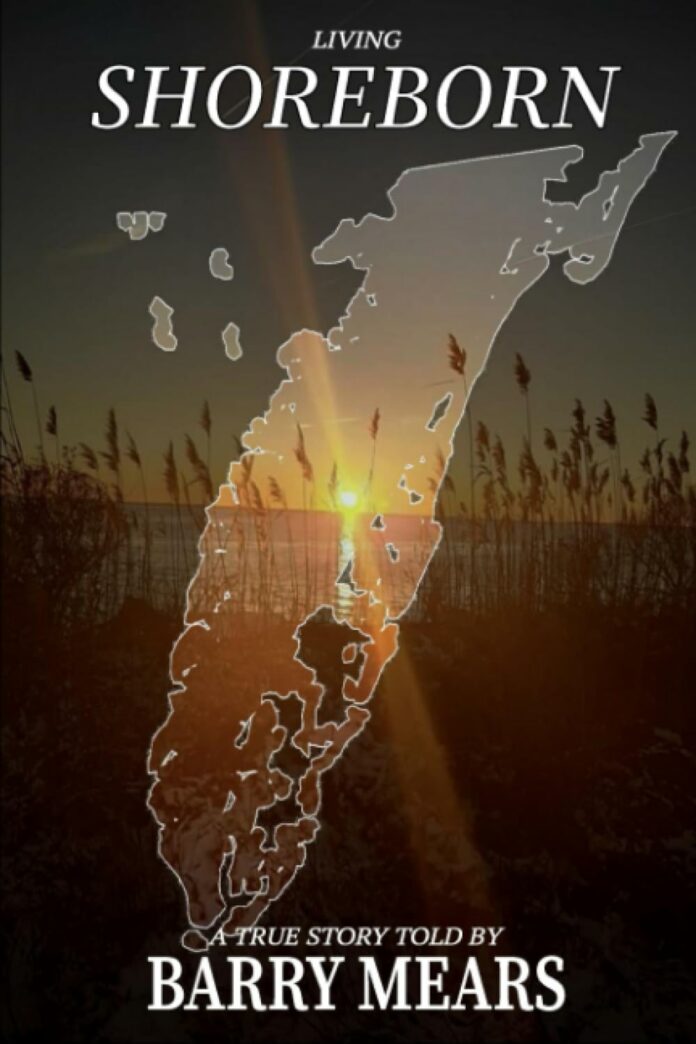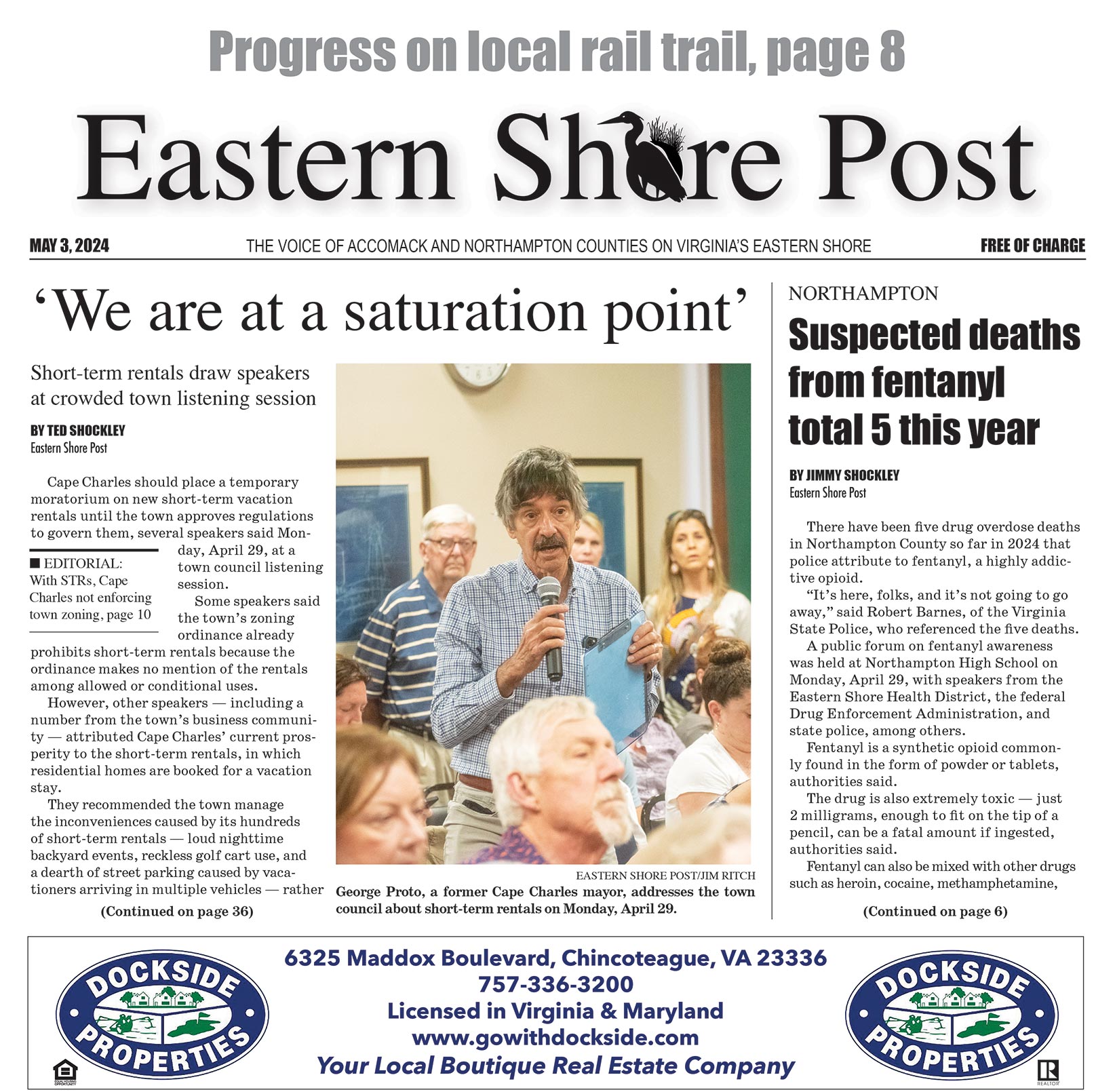BY BARRY MEARS, Special to Shore First
When it came to feeling safe, Accomac was much like any other community on the Eastern Shore. We were trusted to ride our bicycles down to the drugstore for an ice-cold soda pop; this was a gathering spot for old timers to solve the world’s problems.
Another favorite hangout was across the street at Billy Payne’s Texaco; he ran a full-service filling station.
Billy would check the oil while he filled the gas tank, so there was no need for the driver to get out. With the occasional set of windshield wipers, you were on your way. Locals ran a tab and paid it off at the end of the month.
This was a great time to be alive; everyone trusted each other and shared a mutual respect. I was at Payne’s Texaco on much less official business. He kept candies, cakes, and crackers in his office. Billy also had the hottest atomic fireballs west of Piggen that all the kids craved. I can still remember how they made my eyes water.
Billy was more than just a local businessman; he was family. He was wed to Nancy, Mema’s daughter. Brenda and Deborah, the couple’s daughters, were all part of a large family that could enjoy this lifestyle. In those days, no matter where we went, everyone knew each other or, at the very least, knew each other’s people.
There was another place that the kids liked to meet in Accomac. There was always something fun to be had around the old sawmill. Huge piles of sawdust covered the barns, and we loved diving into it from the loft, performing backflips and somersaults among other fancy moves. There was always some inherent danger in our activities, but it never seemed to slow us down. After a few hours of playing, everyone became hungry.
There was a sweet aroma blowing across town in a gentle Virginia Breeze. Scoby Duck had his smoker fired up with pork butts, ribs, and briskets. G. L. Smith and his wife, Pat, are well-known for their delicious barbecue. They perfected their sauce, the Accomac Blend, and the rest is history — Scoby Duck’s Chuckwagon was born. To our delight, the boys from the neighborhood and I were able to taste test the smokey sensations. The smell even drew the attention of Ole Hoss, an interesting character we encountered every time we visited Accomac.
He was always wearing a flowered blouse and smoking a cigarette, and his bicycle was as unique as he was — a giant steering wheel replaced the handlebars, and he had lights and an air horn. His attention to detail was impressive; he even had chrome mud flaps on his makeshift Peterbilt. As children, we assumed Hoss was rich. He was clad with jewelry. He had a ring on each finger and a large gold earring, which was quite a sight for a bunch of 10-year-old boys and girls. One of the rings on his left hand bore the Masonic emblem. When asked if he was a Mason, Hoss replied, “Hell no, son! I’m a Davenport — Jimmy Davenport.”
This man would go on to earn the status of an Eastern Shore icon, with many funny stories about Jimmy and his misadventures.
He once accompanied Lynwood Bundick on a trip to Florida on the semi. Legend has it that an argument broke out on the trip back home. Ole Hoss was told to get out of the truck and was abandoned on the side of the road near the Florida-Georgia line.
Lynwood was always known for making good time, and his next stop was his home in Accomac. As the weary truck driver eased past the courthouse, he had to slow down for a second look — you guessed it, Jimmy Davenport was coming out of the drug store with a cold Coca-Cola. He tipped his cap at Lynwood and said, “What took you so long, Hoss?”
The Shore is blessed to have these great characters living among us.
The town of Accomac has a rich history. The first jail, known as the Debtor’s Prison, was built in 1783. The 18th-century structure still stands today. The courthouse and other municipal facilities were built around the small jail. Accomac is also the birthplace of Henry A. Wise, the governor of Virginia from 1856 to 1860.
I remember getting my hair cut at Al Brock’s barber shop, which was popular among the town’s men for shaves and haircuts. These men told many stories about history from their own perspectives. Many of Mr. Brock’s patrons were quite seasoned, with some being in their 70s and many more being in their 80s or almost 90s.
They shared experiences about the old hotel as well as other local businesses. Time is forever changing the perspectives of those who lived it; these men were World War I soldiers. I can remember listening very intently as stories were passed along from the Civil War era on the Eastern Shore. These old men had fathers and grandfathers who had served during that time period. That is a history lesson you feel down to the core of your soul. I will always have the utmost respect and admiration for those brave souls.
Not every story shared at the barbershop was so serious; I saw firsthand that men are significantly more efficient at gossiping than women. Even if the subject was a tall tale or two, the men would tease one another mercilessly and then all laugh together. This is small-town America, and I’m sure each of you can recall a place like this in your hometown.
It was getting late, and I needed to get back to Mema’s place. I paid Mr. Brock his usual fee of 50 cents for the trim. On my way out, I saw C. Boy, Joe, and Butch Lewis coming in for a trim. When I overheard them discussing an encounter with a grizzly bear while out cruising timber, I was fairly certain that a few more tall tales were about to be told.
With one more bike ride around the block by Accomac Primary School, Val and I headed back. We stopped long enough to speak with Tommy Hines and Jack Lavelle. Like I said, everyone knows your name; it’s all part of the Shoreborn charm in a place we call home.
We returned to find Uncle Joe exactly where we had left him. This trip to the garden netted nearly a bushel basket of carrots. We packed our things and gave everyone a hug and a kiss to hold them over until the next visit. We returned to Greenbush, but we would soon have more visiting to do, as was customary in those days. People came to visit, enjoy each other’s company, and break bread together, a tradition that I fear is long gone.
Mama Sara and I spent countless hours on her front porch, she liked to tell these stories, and I was an eager listener. She showed me where the milk bottles were left when Nelson Farms delivered door to door, and she recalled as a child seeing automobiles and horse-drawn carriages sharing the road. She used to tell me that I was born 100 years too late since I was enamored with historical stories. Thinking about it now, I’d say that her assessment was spot on — I wouldn’t trade those memories for anything.
Sadly, as time goes on, your memories become all you have. Loved ones leave us and new babies bless our lives; the cycle of life.



